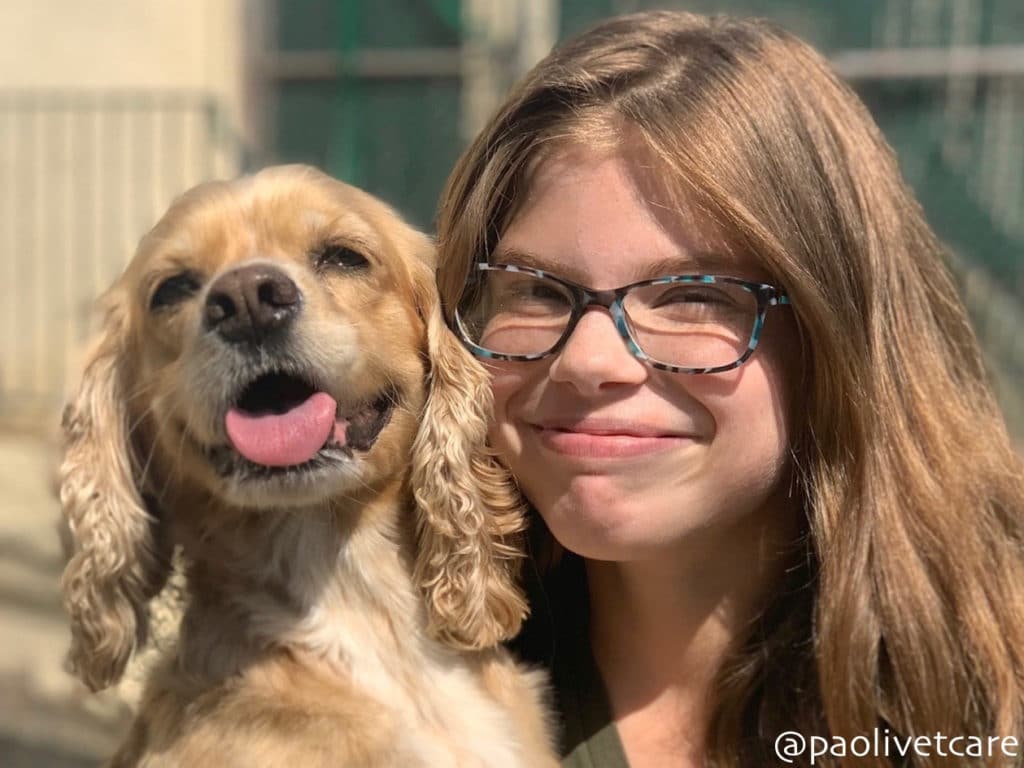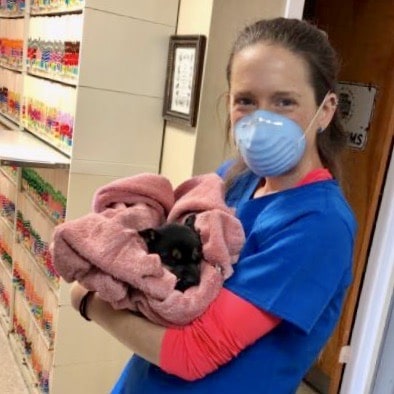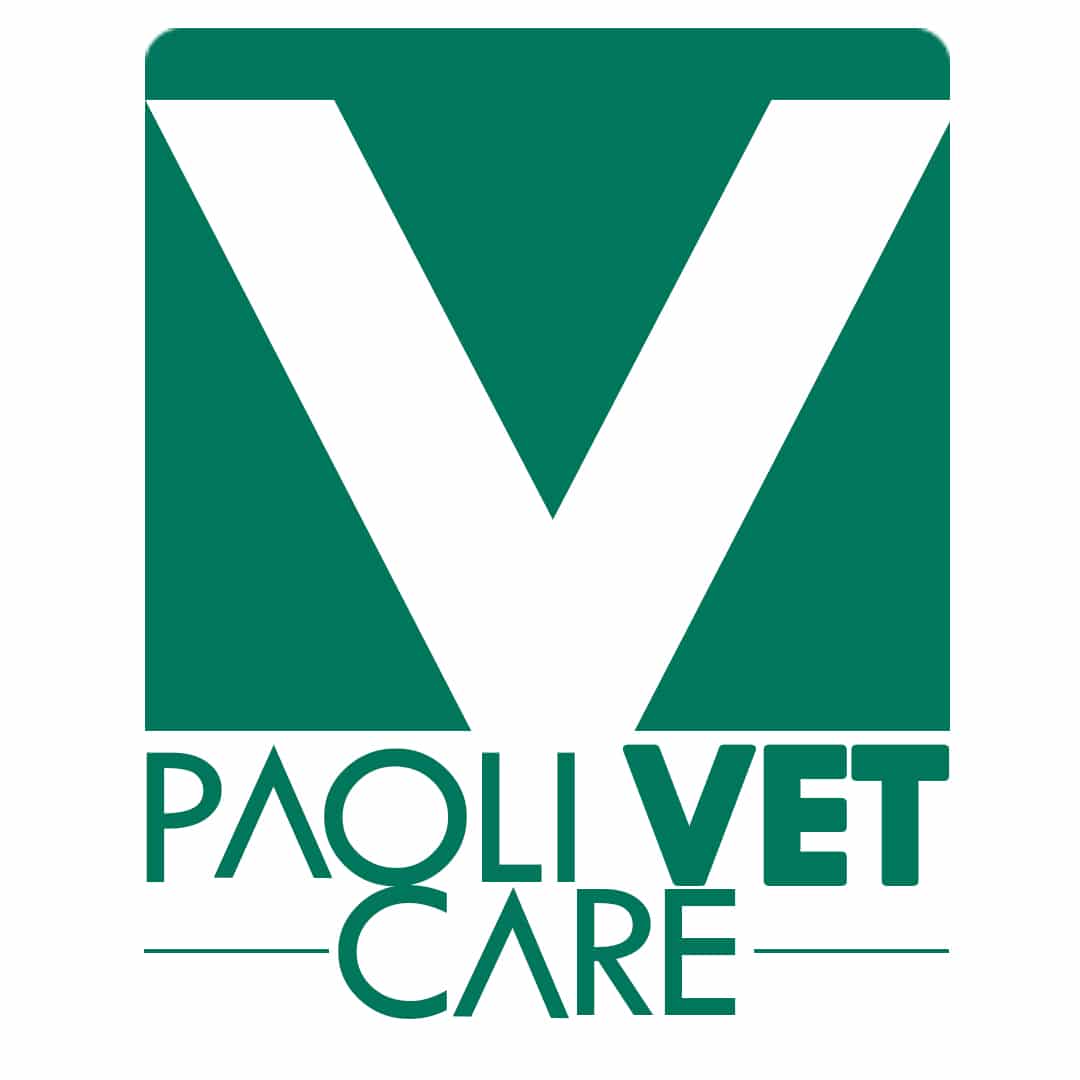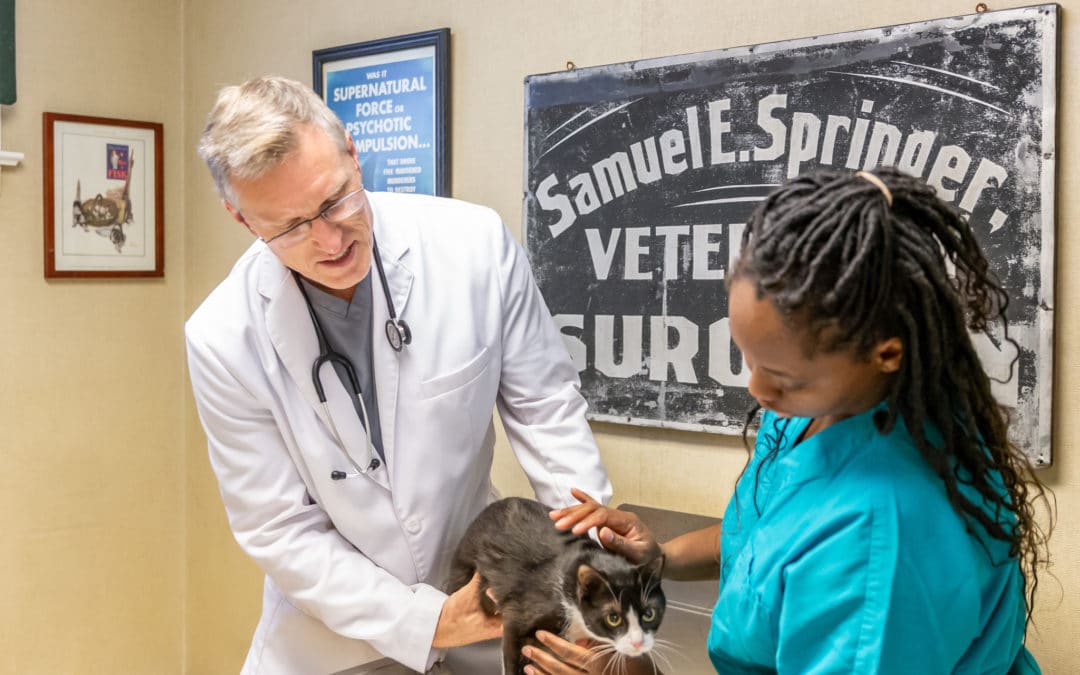Get Answers Quickly —
Table of Contents
- 1 Get Answers Quickly —
- 2 Coronavirus Worldwide Pandemic
- 3 COVID Symptoms in Pets:
- 4 Latest Research on Animals & COVID-19 (May 2020)
- 5 Are There Other Coronaviruses?
- 6 How Do I Protect my Pet from Coronavirus & COVID-19?
- 7 Authoritative Links for Pet Owners on COVID:
- 8 Consider Joining the Paoli Vetcare Family
The virus that causes COVID-19 (known as the novel coronavirus or by it’s scientific name—SARS-CoV-2) has caused a worldwide crisis that continues to grow in intensity. The health & economic fallout has people everywhere concerned.
People are not only concerned about themselves & their loved ones but also their pets. Since COVID-19 is caused by a new virus, scientists are still learning how it affects people & animals. One of the main questions for pet owners “Do I need to worry about the coronavirus in pets?”
While there are still questions about how the virus affects both people & pets, there are steps that you can take to ensure that your pets are safe.
COVID Symptoms in Pets:
- Fever
- Coughing
- Difficulty breathing or shortness of breath
- Lethargy
- Sneezing
- Nasal discharge
- Ocular discharge
- Vomiting
- Diarrhea
Latest Research on Animals & COVID-19 (May 2020)
When you have people with COVID-19 & they have contact with animals, there’s some risk of infecting the animals. People shouldn’t start freaking out—the risk varies by animal species, but this virus seems to have the ability to infect a few different species beyond our own. For the most up to date information on COVID-19 & coronavirus in pets read “Latest News on COVID/Coronavirus & Pets.”
Cats
Findings from laboratory studies show cats are the most susceptible species for SARS-CoV-2 & cats can have symptoms like respiratory signs, fever, & diarrhea. In the laboratory cats can transmit infection to other closeby cats.
Two pet cats from New York tested positive for SARS-CoV-2 . There’s not too much new to report, but here are the highlights from the Worms & Germs blog:
- SARS-CoV-2 virus was found in two pet cats in New York, from separate households.
- Both had mild upper respiratory tract disease, as is probably the norm for cats that develop clinical infection from the virus. Both cats are expected to recover fully.
- Perhaps the most interesting aspect of the story is there was no clear source of the virus for one cat. The conclusion was “The virus may have been transmitted to this cat by mildly ill or asymptomatic household members or through contact with an infected person outside its home.” Hopefully there was an asymptomatic infection in a person in the household, since a cat picking it up from casual contact with someone outside the home raises some concerns.
- The other cat was from a known COVID-19 positive household, so no surprise there.
Dogs
Dogs also are susceptible to infection, but appear to be less affected than ferrets or cats. Winston, a dog in North Carolina has tested positive for coronavirus, the virus that causes COVID-19. The dog was in a household with infected people, & was tested as part of a study by researchers at Duke University. The other dog, cat, & lizard in the family all tested negative. This is the first reported infected dog in the US, but likely not actually the first infected dog.
Ferrets
Ferrets are also susceptible to infection but seem less likely to show signs of disease. In a research lab, ferrets were also able to transmit infection to other ferrets. Because of this, it is possible ferrets could serve as a useful model for future studies, e.g. to evaluate vaccines or drug treatments.
Mink
Coronavirus was found in mink on two farms in the Netherlands. It’s assumed the workers infected the mink since there were sick employees at both farms. Whether it was all worker-to-mink transmission or whether there was any subsequent mink-to-mink transmission is unknown at this time.
How many were sick & how many were tested? The scope of the problem isn’t clear yet. Between the two farms there are over 20,000 mink, & the ones that were sick had both intestinal & respiratory disease. Infection on any farm with that many animals is certainly concerning. Mink are usually close enough that aerosol or droplet transmission between animals would be possible.
Locals are being told to stay at least 400 metres away & roads to the farm are closed. Issues such as potential virus transmission on dust particles—since other bacteria & viruses can sometimes be found downwind of affected farms—and what to do with the mink manure are being considered. Manure handling is important to investigate because virus shedding in feces is likely, & 20,000 mink produce a lot of feces!
Cats on the infected farms are also being investigated. This is critical information to determine if the virus can spread to different species in animal groups or if the cats have been infected by the same sick workers. COVID-19 is almost exclusively a human problem, but we need to find out for sure whether or not animals sometimes infect people or act as reservoirs for the virus. More study of animals & the novel coronavirus is desperately needed—as are continued efforts to keep sick people away from animals & virus-exposed animals away from other animals & people.

Coronaviruses are a family of viruses. Such viruses cannot reproduce on their own because they lack DNA, so they attach on to a host cell & take over its DNA production apparatus. The virus directs the host cell to produce many more copies of the virus, damaging the host & seeding the environment with infectious particles.
The name ‘corona’ means ‘crown’ & is a reference to the crown of spike-shaped proteins that you can see when you look at the virus in an electron microscope. If you’ve seen the drawings & animations of the COVID-19 virus, then you might have noticed that it looks like a spiked ball or an old-fashion king or queen’s crown.
An important thing to note here is that there are many different strains of coronaviruses. They are commonly seen in animals & humans. Most of them are unique to a single species, but occasionally they can jump between from one species to another. A jump from bats to humans in Wuhan, China, possibly through an intermediate host like a pangolin, is believed to be the origin of the current COVID-19 pandemic.
In humans, coronaviruses can cause a range of symptoms. These can be as mild as the common cold or seasonal flu. However, some severe viruses, such as Severe Acute Respiratory Syndrome (or SARS) & the Middle East Respiratory Syndrome (MERS), come from coronaviruses.
In animals, coronaviruses can cause a range of symptoms as well. For example, in dogs, cats, & pigs strains of coronavirus can cause digestive tract problems like diarrhea.
Doctors detected the first human case of COVID-19, which stands for COronaVirus Disease, in late 2019. The name COVID-19 derives from the year it was first detected in humans, not because it is the 19th coronavirus, as has been erroneously stated by some media pundits. Unfortunately, since that time, it has since spread around the world causing a number of epidemics in countries on different continents. When that happens, a disease outbreak is then called a pandemic.
The good news is that we currently do not have any evidence that suggests that cats, dogs, & other common pets are spreading COVID-19 or that it affects them as severely as it does humans. So far, there have been cases of cats, dogs, tigers, lions, & ferrets testing positive for the coronavirus after exposure to infected, sick humans. At this time, severe disease or deaths in pets from COVID-19 has not been reported.
There have not yet been any documented cases of pets actually spreading the virus & infecting humans, only cases of humans infecting their pets or zoo animals. Neither have scientists have found any evidence to suggest that animal products pose a risk for spreading the 2019 novel coronavirus in the United States.
Although this particular coronavirus is a new one, scientists can look at previous outbreaks of coronaviruses, like SARS & MERS to assess the public health risk. Given what they know about those other coronavirus’s behavior, experts think it’s highly unlikely that pets are a significant source of infection for human COVID-19.

Can Pets Carry COVID-19 on Their Fur?
There is still a minimal chance that your pet might act like a fomite. What is a fomite? In simple terms, it is a surface on which coronavirus can stay alive. The concern is that, because people have so much contact with their pets, the pet could carry the virus in between people even if the pet is not infected.
The virus survives best on smooth, non-porous, & inanimate surfaces. However, there remains a tiny chance a dog or cat that came into contact with an infected person can carry the virus to a non-infected person on their fur or mucous membranes resulting in human disease.
What safety measures can you take to prevent giving COVID-19 to your pet or having your pet spread it?
Tips for Protecting your Pet
There are some simple steps that you can take to minimize the chances of giving your pet the virus or having them carry it between people.
- Always practice good hand hygiene. Wash your hands before & after feeding, walking, playing with, or handling a pet. Remember you could be a source of infection.
- Call your veterinarian & ask any questions about your pet’s symptoms, especially if there is a person with COVID-19 symptoms in your home. Be on the lookout for respiratory signs, diarrhea, or lethargy.
- If the pet of someone with COVID-19 has to leave the house (e.g. to go to a veterinary clinic for medical care), precautions need to be taken to reduce the risk of exposing other people or animals. Tell your veterinarian before they handle your pet. There is no reason to worry that you will be refused service.
- Consult a vet to help you determine the best way to take care of your pet and yourself in your particular situation. Paoli Vetcare’s Dr. Jay Rowan will be happy to speak with you by phone or video chat.
- If you suspect you may have COVID-19 symptoms, it is critical to have another member of your household or a friend care for your animals while you are sick. You should isolate yourself from other people to avoid infecting them–do the same with your pets! Learn more here: “Latest News on COVID/Coronavirus & Pets.”
- If you must care for your pet or be around animals while you’re sick, wear a mask & wash your hands before & after you interact with them.
- Although there has not been any conclusive evidence of pets spreading coronavirus to people, until veterinary scientists have more definitive information about the virus, limit contact if either of you or your pet is sick to protect you both.
- Don’t let your pet interact with another family’s pets. Social distancing rules apply to your pet too. dog playdates are not okay at this time.
- Don’t pet dog’s you meet outside & don’t let people outside your household pet your dog. If you socially distance your pet(s) in the same way you should be socially distancing yourself from other people, there is basically no chance they will bring this virus into the household.
- If a household member has COVID-19, keep your pet in the house with you. This includes indoor/outdoor cats.
- American Veterinary Medical Association (AVMA) FAQs
- Center for Disease Control (CDC) COVID-19 & Animals
- CDC COVID Guidance for People with Pets
- What to Do if Your Pet Tests Positive for the Virus that Causes COVID-19
Consider Joining the Paoli Vetcare Family
We invite you to meet Dr. Jay Rowan or Dr. Erin Downes—the best reviewed veterinarians on the Main Line—for a physical exam or second opinion. You can book an appointment online now. If you’d like to support our animal hospital, please shop for your pet food and medications through the Paoli Vetcare Online Pharmacy.








